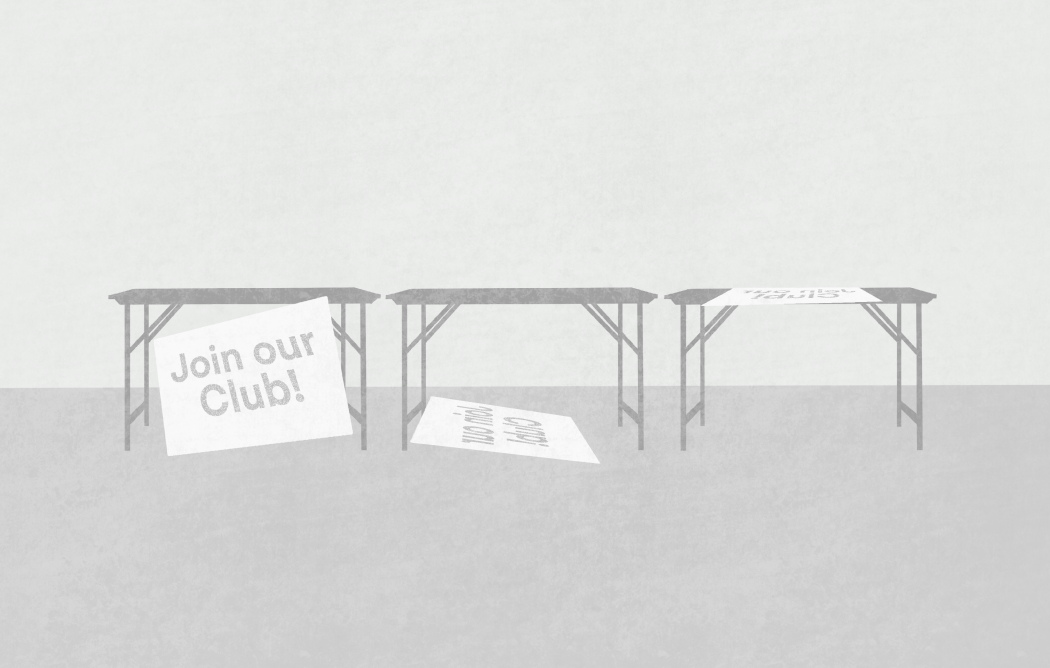“This online semester has taken a toll on the morale of all students, and our club was no exception to this,” explains Rubana Murshed, VP Events for the Bangaldeshi Students Association.
COVID-19 has affected various aspects of McGill student life, as there are limitations to in-person gatherings and events. Due to these regulations, McGill clubs and associations have encountered various challenges and have had to come up with innovative ways to adapt.
For the clubs that were able to continue holding events through online platforms such as Zoom, complications such as community engagement have been common.
For performance-based groups, like Chromatones A Cappella, COVID-19 restrictions had a significant impact on rehearsals and connections to the broader A Cappella community.
“It has been hard to figure out a way to rehearse considering everyone is in different time zones, without strong wifi, without a good place to rehearse, or busy with other matters,” explains Mekayla Forrest, the President of Chromatones. “We have taken a big step back from our normal time commitments and some members have even decided to take a break from participating in the group considering the remote environment.”
Collaboration with other A Cappella groups, typical of the McGill A Cappella community, cannot happen, diminishing the social aspect of the community. Forrest says, “For a lot of us, A Cappella is where we got to make long lasting friends and take a break from the stress of school and it is definitely sad for all of us that we can’t be together to share our love of music.”
It is definitely sad for all of us that we can’t be together to share our love of music
Given that most events are online for McGill clubs, there have been some challenges with regards to engagement. At times, there can be lower attendance and less engagement than there normally would be. Rubana Murshed, VP Events for the Bangladeshi Students Association, describes how fewer people attend online events than in-person events that had occurred in the past. Additionally it’s “a bit awkward” because there are “so many people in one Zoom call who have never met before.”
Hillel McGill mentioned that a challenge that they had faced that was related to engagement was Zoom fatigue. Danielle Fuchs, Hillel McGill Co-President, explains how “students don’t want to go on Zoom any more than they have to for classes.”
The unprecedented increase in the use of video-calling platforms, like Zoom or Google Hangouts, has led to a sort of “unofficial social experiment” where it has become increasingly clear that these virtual interactions are taxing on the brain. For students, who spend most of their day on Zoom for classes, extracurricular events that are also on Zoom may be less enticing.
Some clubs were completely unable to continue holding events due to the restrictions that were implemented in Montreal. Salseros McGill, a dance group that teaches salsa and bachata, initially considered holding classes with a limited number of dancers who would be wearing masks and with a focus on single routines, rather than couples. However, following an outbreak within the dance community at McGill, they had to make the difficult decision to cancel in-person classes in order to keep their dancers safe. They decided against online classes as well.
“During in-person classes, there were some people who needed extra help and were confused with the steps, placements, and hand positions,” explains a representative from Salseros. “Therefore, an online class, where it is difficult to precisely see the movements, is not favourable.”
Students don’t want to go on Zoom any more than they have to for classes
For religious and cultural groups like Hillel McGill and the Bangladeshi Students Association, reaching out to first years is especially important to build community. Hillel McGill connected with first years through Activities Night, personal connections, and a Jewish Partners fair.
“Once we connected with a few first years, it was easy to find more by having them reach out to their friends and posting events in the first year Facebook group,” says Fuchs. “We actually have a leadership committee for first years, which is a great way to plan programming that first years will actually want to attend!”
Similarly, the Bangladeshi Students Association has found that it was “especially difficult for freshmen as they started their college experience from behind a screen instead of being able to go to Montreal.” Typically, their first event is a ‘send-off’ to “prepare incoming students for their journey halfway across the world,” but they have had to find new ways to connect these first years to their Bangladeshi community.
“We tried to adapt our events to focus on the first-year students a bit more to help them through their challenges,” explained Rubana Murshed. “Especially since most of them feel very isolated from not being able to meet new people and make new friends.”
Various clubs mentioned social media as a way of connecting with their community and reaching out to first-year students. Social media platforms, such as Facebook and Instagram, have allowed for the promotion of various online events and have helped build connections within the community. The Bangladeshi Students Association, for example, has created a group chat for first-years to build friendships and ask questions.
Smaller clubs, such as She’s the First McGill, an organization which aids in the education of girls in low-income countries, were initially a bit worried about attendance for their events. Ultimately, however, VP Social Media Noa Fragneau explains that engagement has been “better than for certain events that were in person because we’re able to reach such a broader audience. Like, we [had] our 2nd monthly forum on October 29 and people from Puerto Rico are coming!” Similarly, Hillel McGill said they have also been able to incorporate speakers into their events who wouldn’t have been able to make it to Montreal.
Following McGill’s September announcement that the winter semester will take place primarily online, various clubs are beginning to consider the long-term impacts of COVID-19.
Financial issues are beginning to arise, with some groups being unsure of how they will continue to fund activities and events. Chromatones, for example, make all of its money through events that would be contrary to public health guidelines, including concerts, samosa sales and busking. Likewise, She’s the First is concerned that raising money to donate to the main organization, which helps fund educational projects for girls, may become complicated in the future.
Fragneau explains that “it feels weird charging money right now in such a weird and hard period for a lot of people. We’re looking into doing donations for our monthly forums so that attendees can give a little bit and there’s still the option of not giving a donation and still attending the event.”
Further, different groups must come up with new and innovative ways to educate and connect with McGill students. Salseros McGill explains how their principal concern is the community and that they will be “adapting activities and thinking outside the box to find creative ways to facilitate virtual community building and dancing for members.” Fuchs describes how the pandemic has compelled Hillel McGill “to work really hard to compensate for everything being virtual,” and how she hopes for “more creative programming going forward!”








